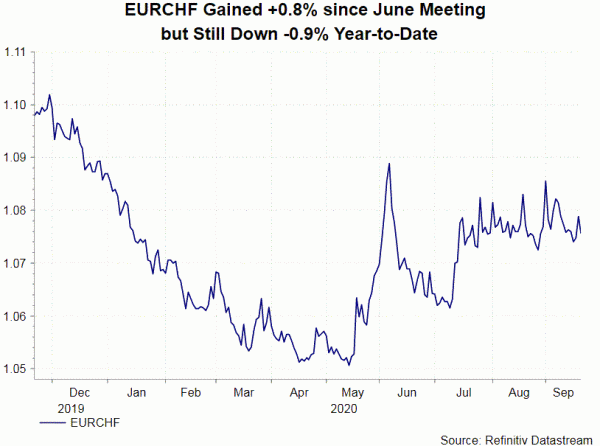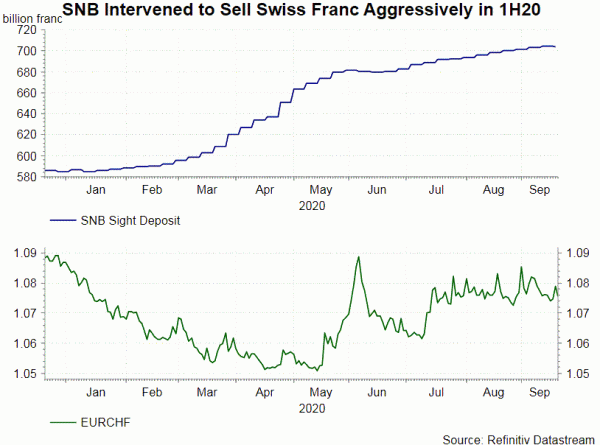We expect SNB to leave the policy rate unchanged at -0.75%. While it does not rule out the possibility of further rate cut, the central bank’s main tool is FX intervention to curb excessive strength in Swiss franc. Economic contraction in 2Q20 turned out to be less severe than expected. Leading indicators also suggest that recovery is underway. However, inflation has remained weak. There will only be mild adjustments, if any, in SNB’s updated economic projections.
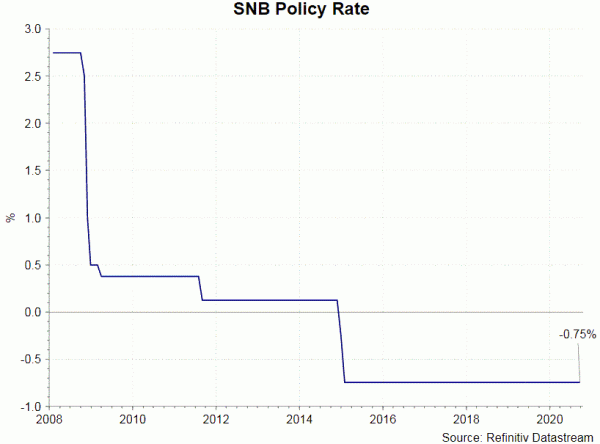
Swiss GDP contracted -8.2% q/q in 2Q20, accelerating from -2.5% in the first quarter and slightly better than consensus of -8.5%. The country entered recession technically with two consecutive quarters’ of negative GDP growth. Like other European countries, Switzerland’s economy was hurt by the lockdown measures and border restrictions as a result of the coronavirus pandemic. Leading indicators suggest that economic activities have been improving in the third quarter. KOF indicator rose to 110.2 in August, from 86 a month ago. This has beaten consensus of 90. Manufacturing PMI, compiled by Credit Suisse/Procure.ch, gained +2.6 points to 51.8 in August. A reading above 50 signals that manufacturing activities have returned to expansion. However, deflationary pressure remained with headline CPI steadied at -0.9% y/y in August. The headline reading came in slightly weaker than consensus of -0.8%. On the job market, the unemployment rate stayed unchanged at 3.4% last month.
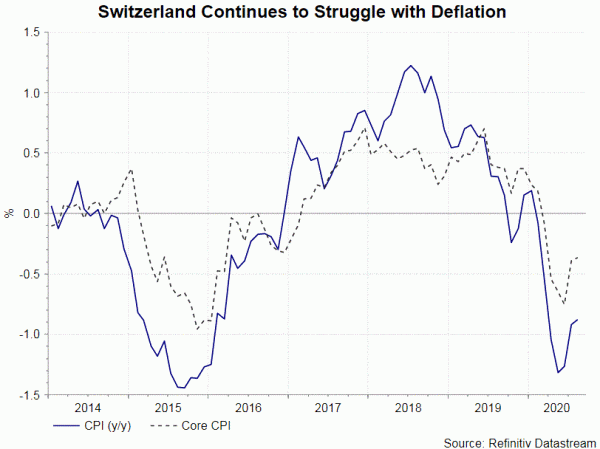
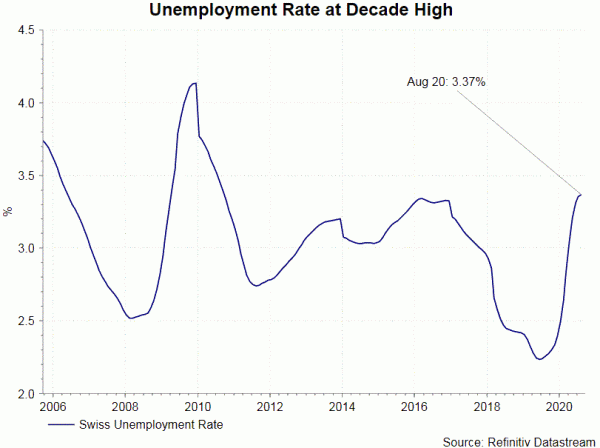
In June, SNB revised lower this year’s GDP growth to -6%, followed by growth in 2021. Inflation was also revised lower in June. Headline CPI is expected to fall to -0.7% y/y this year, before improving to -0.2% in 2021. Inflation will return to +0.2% in 2022. The central bank cited bleak growth outlook and weak oil prices as the factors for downgrade. We see the forecasts are still valid, although it is possible for the central bank slightly revise higher inflation forecasts due to the pick-up in oil prices since May.
On the monetary policy, SNB is expected to leave the policy rate at -0.75%. It will reiterate the commitment to intervene in the FX market in light of Swiss franc’s appreciation. The reference that “in light of the highly valued Swiss franc we remain willing to intervene more strongly in the foreign exchange market” should be retained in the accompanying statement. Such monetary policy stance will likely remain for some time. As President Thomas Jordan indicated in July, “even though we still have scope for further interest rate cuts, the fact remains that one cannot lower interest rates indefinitely”. Jordan reiterated this stance earlier this month. As he noted, “the franc is a safe haven, always where there is uncertainty in the world there is a search for safe-havens like the franc… The franc is highly valued. So long as it is highly valued, we will continue with our monetary policy with intervention and negative interest rates to reduce the appreciation pressure”. These signal that FX interventions are playing the key role in SNB’s policy.
